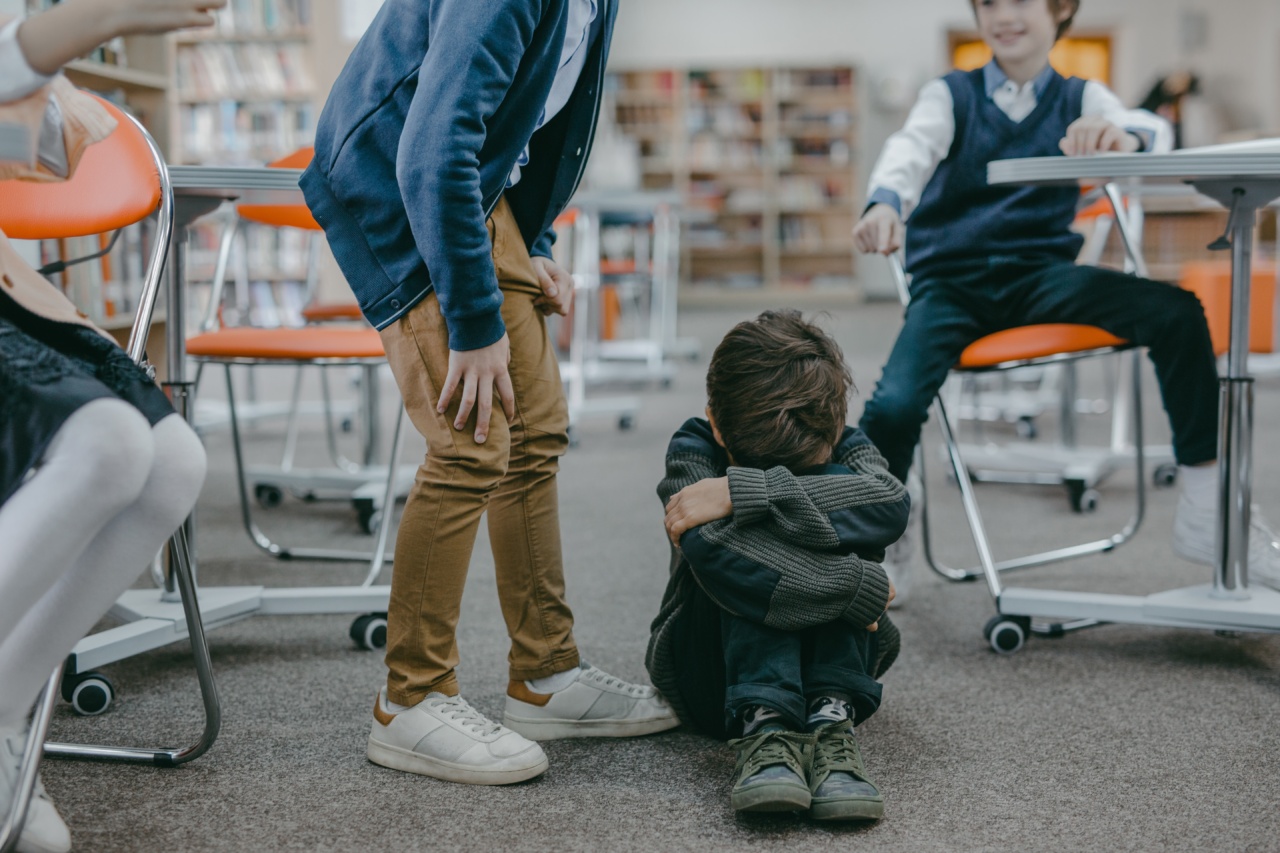Bullying is a prevalent issue affecting children worldwide. It has far-reaching consequences, not only on a child’s mental and social health but also on their physical well-being.
Research has shown a clear link between bullying and frequent sickness in children, illustrating the long-lasting impact of victimization on various aspects of a child’s life. This article explores the connection between bullying and frequent sickness, shedding light on the detrimental effects of bullying on a child’s health.
The Impact of Bullying on Physical Health
Bullying can lead to a myriad of physical health problems in children. The constant stress, fear, and anxiety experienced by victims of bullying can weaken their immune systems, making them more susceptible to illnesses and infections.
Studies have shown that children who are bullied tend to have a higher prevalence of symptoms such as headaches, stomachaches, sleep disturbances, and general malaise.
Furthermore, bullying can also lead to chronic health conditions later in life.
The stress endured during childhood due to bullying can have lasting effects on the body, contributing to the development of conditions like cardiovascular disease, autoimmune disorders, and even certain types of cancer. The negative impact on physical health is not limited to the present moment but can extend well into adulthood.
The Role of Stress and Anxiety
Bullying exerts an enormous amount of stress and anxiety on its victims.
The fear of being targeted, humiliated, or physically harmed leads to a constant state of hyperarousal, which significantly impacts a child’s physiological and psychological well-being. The persistent activation of the body’s stress response system can result in prolonged periods of heightened stress hormones, such as cortisol, which can weaken the immune system and disrupt its normal functioning.
Children who experience chronic stress and anxiety are more likely to suffer from frequent illnesses due to a compromised immune system.
The constant activation of the body’s stress response can weaken immune cells and impair their ability to defend against pathogens. As a result, children who are bullied may experience more frequent respiratory infections, gastrointestinal problems, and other illnesses.
The Psychological Impact of Bullying
Bullying not only affects a child’s physical health but also takes a toll on their mental and social well-being.
The persistent victimization can lead to the development of mental health disorders such as depression, anxiety, and post-traumatic stress disorder (PTSD). These psychological conditions further contribute to the decline in a child’s physical health.
Depression and anxiety can cause disruptions in sleep patterns, appetite, and overall well-being, which can weaken the immune system and make the child more susceptible to illnesses.
Furthermore, the emotional distress caused by bullying can lead to social isolation, further exacerbating the negative impact on a child’s immune health. The lack of social support and meaningful connections can make it even harder for the child’s body to fight off infections and maintain a healthy immune system.
The Importance of Prevention and Intervention
Given the significant impact of bullying on a child’s physical health, it is crucial to prioritize prevention and intervention strategies. Schools and communities play a vital role in creating a safe and supportive environment for children.
Implementing comprehensive anti-bullying programs that address both the perpetrators and victims can help reduce the prevalence and severity of bullying.
Early detection and intervention are key to minimizing the detrimental effects of bullying on a child’s health.
Schools should have clear policies in place for reporting and addressing bullying incidents, ensuring that victims receive the necessary support and resources to cope with the emotional and physical consequences of bullying.
Supportive counseling and therapy should be made readily available to victims of bullying, helping them process their experiences, build resilience, and develop coping mechanisms.
Furthermore, educating children, parents, and teachers about the signs and effects of bullying can foster a culture of empathy, respect, and support within schools and communities.
Conclusion
Bullying has far-reaching consequences on a child’s well-being, encompassing both their mental and physical health.
The link between bullying and frequent sickness in children highlights the need for concerted efforts to address this pervasive issue.
By understanding the detrimental effects of bullying on a child’s physical health, we can work towards creating a safer and more inclusive environment for all children, protecting their overall well-being and fostering their healthy development.































